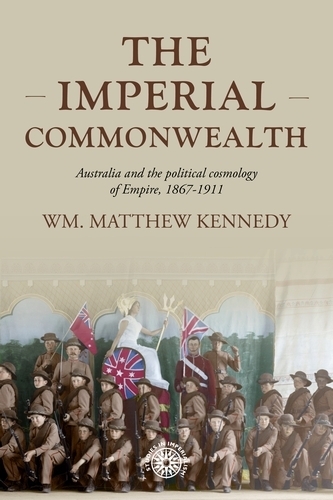
The Imperial Commonwealth: Australia and the Project of Empire, 1867-1914
(Hardback)
Publishing Details
The Imperial Commonwealth: Australia and the Project of Empire, 1867-1914
By (Author) Wm. Matthew Kennedy
Manchester University Press
Manchester University Press
1st November 2023
United Kingdom
Classifications
General
Non Fiction
Social and cultural history
Australasian and Pacific history
994.03
Physical Properties
Hardback
280
Width 156mm, Height 234mm, Spine 16mm
558g
Description
The Imperial Commonwealth examines what empire meant to late nineteenth- and early twentieth-century Australian settler colonists, how it seemed to entail special obligations for white settlers of British heritage, and how, in developing settler colonial categories of empire, Australian itself became an empire.
From the late 1800s to the early 1900s, Australian settler colonists mobilised their unique settler experiences to develop their own vision of what empire was and could be. Reinterpreting their histories and attempting to divine their futures with a much heavier concentration on racialized visions of humanity, white Australian settlers came to believe that their whiteness as well as their Britishness qualified them for an equal voice in the running of Britains imperial project. Through asserting their case, many soon claimed that, as newly minted citizens of a progressive and exemplary Australian Commonwealth, white settlers such as themselves were actually better suited to the modern task of empire. Such a settler political cosmology with empire at its centre ultimately led Australians to claim an empire of their own in the Pacific Islands, complete with its own, unique imperial governmentality.
Author Bio
Wm. Matthew Kennedy was recently a Marie Sklodowska-Curie Postdoctoral Fellow and is now a Research Associate at the University of Sussex
